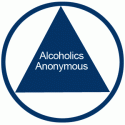Impulsivity Linked to Cocaine Addiction
Call it the chicken-and-egg debate of the addiction world: Cocaine addicts are known for being frenetic, but which came first, the behavior or the habit? New research indicates that, at least in rats, it’s the behavior that begets addiction. What’s more, the study has pinpointed the character trait–impulsiveness–that is responsible for developing true drug dependence. Experts believe that the findings may lead to new approaches for treating addiction.
Scientists who study drug addiction have a common problem: The individuals they deal with are already addicted, so it’s hard to tell what, if any, behaviors led to the initial dependence. What they do know is that two traits–impulsiveness and thrill-seeking–tend to define most drug addicts. Although the behaviors are similar, scientists have been able to parse them in the lab: Highly impulsive rats jump the gun on simple tasks–pushing a button, for example, before they are signaled to do so; thrill-seeking rats, meanwhile, will rapidly explore any new environment–immediately sniffing various objects in a new cage, for example–whereas normal rats would wait until they felt comfortable in their surroundings.
In hopes of discovering if either of these two traits might be a catalyst for drug addiction, psychologists David Belin and Barry Everitt, both of the University of Cambridge in the U.K., hooked up the sensation-seeking rats and the impulsive rats to a device that dispensed cocaine directly into the rats’ brains. The rats could control the dispenser, so they could take the cocaine whenever they wanted. As the team reports in today’s issue of Science, the thrill seekers tried the cocaine immediately, taking it in sky-high doses. The impulsive rats weren’t as quick to turn to the drug, however, and when they did, they took it in smaller amounts.
After 40 days of free access to cocaine, however, the impulsive rats were the ones who became the addicts. They were unable to stop taking cocaine even when it meant getting an electric shock, the team reports. The thrill seekers, meanwhile, had lost interest in the drug; apparently, the thrill was gone.
“This study … shows that there is a biological bridge, at least in the rat,” between impulsive behavior and drug addiction, says David Nutt, a psychopharmacologist at the University of Bristol in the U.K. Marc Potenza, a psychiatrist at Yale University, believes that the research has important implications for treating drug dependence. “We might be able to identify individuals at early times in their lives that may be prone to developing addiction,” he says. Everitt agrees, noting that anti-impulsivity medication, such as some antidepressants, may be the key to helping people stay away from cocaine for good. “This has opened a surprising therapeutic window,” he says.
_________
source: http://sciencenow.sciencemag.org
